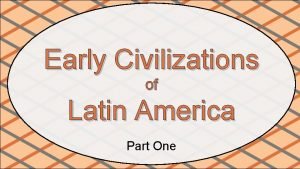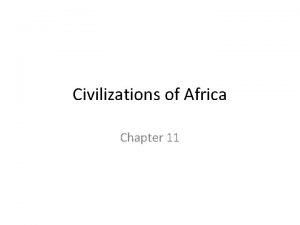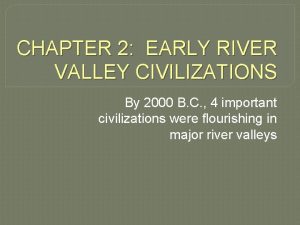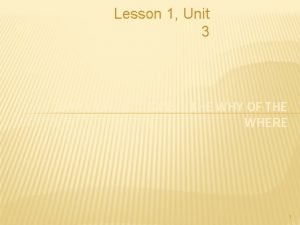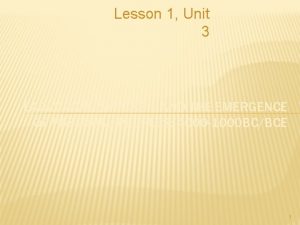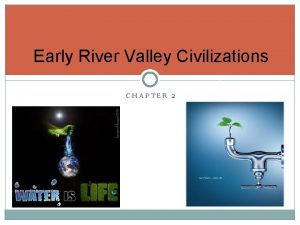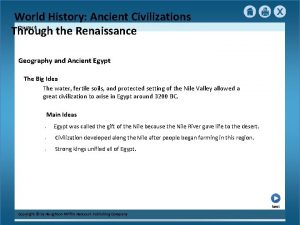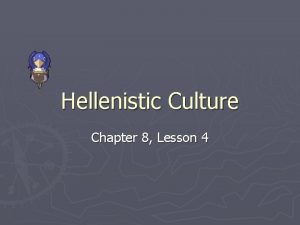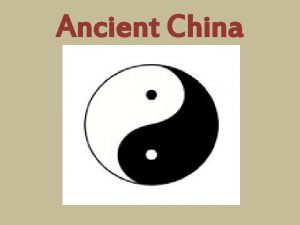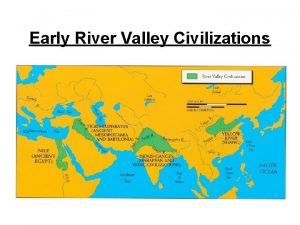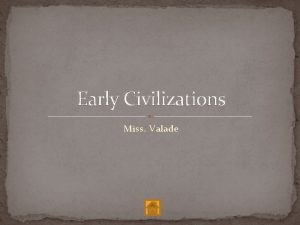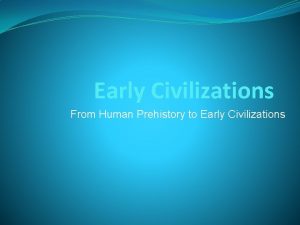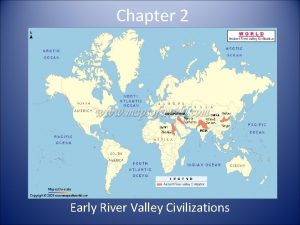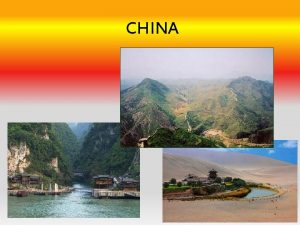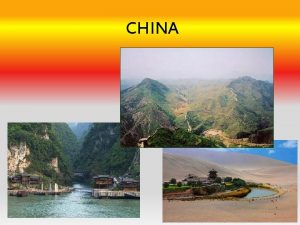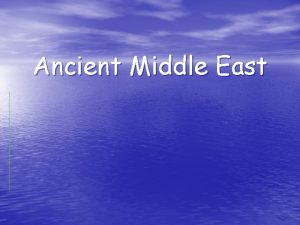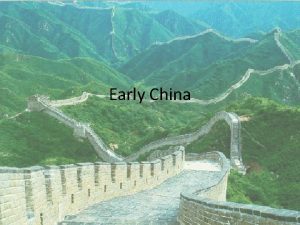China History and Culture EARLY HISTORY Civilizations developed












- Slides: 12

China History and Culture

EARLY HISTORY: >>>Civilizations developed along the Yellow and the Yangtze Rivers Early history was marked by a series of dynasties Dynasty: rulers from the same family Dynasties: Shang: 1700 BC- 1100 BC Qin: lasted 2, 000 years Manghi (Qing): the last Chinese dynasty From 1644 -1912

EUROPEAN CONTROL: China was divided by the Europeans during the 19 th century This was called “The Spheres of Influence” This led to the Boxer Rebellion Chinese militants attacked and killed foreigners as well as thousands of Chinese Christians

REVOLUTION AND CHANGE: Chaing Kai-shek. Nationalist Mao Zedong. Communist Lose a civil war to Mao Zedong Leads a communist revolution in China in 1949 Forced to flee to Taiwan and set up his government Re-names China the People’s Republic of China Takes over China in 1925 Creates the “Red Army” to help enforce strict rules

CONFUCIANISM: founded by Confucius Believed in respect for the past and for ancestors Orderly society: filial piety 1. Parents-Children 2. Ruler-Subjects 3. Older siblings-younger siblings 4. Husband-wife 5. Friend-friend Importance of education

TAOISM: Based on the teachings of Lao-Tzu Means “The Way” Believed in the importance of restoring and maintaining harmony in the individual and in the universe Government should leave people alone Harmony with nature People have problems because they do not understand the natural world in which they live and how it behaves Goal is to achieve mental clarity, power, and inner peace

Originally established in India BUDDHISM founded by Siddhartha Gautama (Buddha) In China, Taoism and Confucianism influenced Buddhism Believe in Reincarnation Fourth Noble Truths: 1. Life is full of suffering 2. People suffer because they desire things that do not last (earthly possessions) 3. The way to end suffering is to stop desiring things 4. The way to get rid of desire is to follow the Eightfold Path >>>Right thought, speech, understanding, effort, action, mindfulness, work, and meditation

Who said…? “Education breeds confidence. Confidence breeds hope. Hope breeds peace. ”

Who said…? “Another word for life is change. Two words for suffering are resisting change. ”

Who said…? “Nature does not hurry, yet everything is accomplished. ”

The Vinegar Tasters o From left to right: Confucius, Siddhartha Gautama (Buddha), Lao Tzu o The expression on each man’s face shows how the vinegar tasted to him. The “vinegar” is supposed to represent life. o Confucius: has a sour look on his face; this represents that life is unpleasant o Buddha: wears a bitter expression; this shows that life is harsh o Lao Tzu: smiles; this means that he is happy with life

What is your philosophy of life? o Have a phone ready to take a selfie while tasting vinegar. o What does your face say about the way you feel about life? o Describe or draw your face. o In 3 -5 sentences, write your philosophy of life. o Does your philosophy align with one ore more of the three we talked about? Which one(s)? How is your philosophy similar?
 Early south american civilizations
Early south american civilizations Chapter 9 lesson 1 early civilizations
Chapter 9 lesson 1 early civilizations Chapter 11 section 1 early civilizations of africa
Chapter 11 section 1 early civilizations of africa Machu picchu and mesa verde similarities
Machu picchu and mesa verde similarities Chapter 2 early river valley civilizations
Chapter 2 early river valley civilizations Lesson 1 early civilizations
Lesson 1 early civilizations Lesson 1 early civilizations
Lesson 1 early civilizations Chapter 2 early river valley civilizations
Chapter 2 early river valley civilizations Ancient civilizations through the renaissance
Ancient civilizations through the renaissance Who was the most famous scientist of the hellenistic era
Who was the most famous scientist of the hellenistic era Geography and early china
Geography and early china Early cpr and early defibrillation can: *
Early cpr and early defibrillation can: * List of han emperors
List of han emperors
